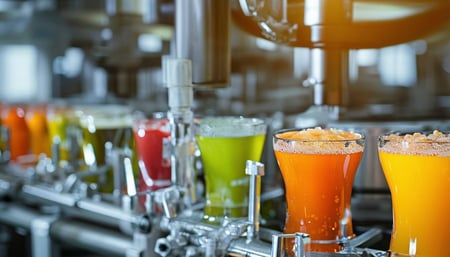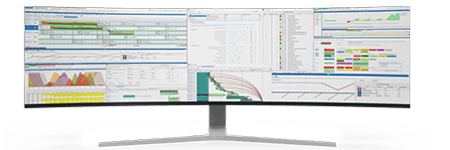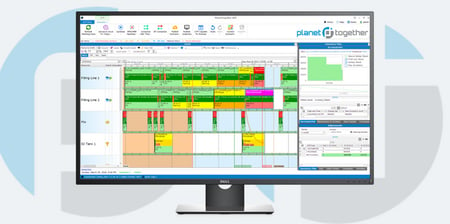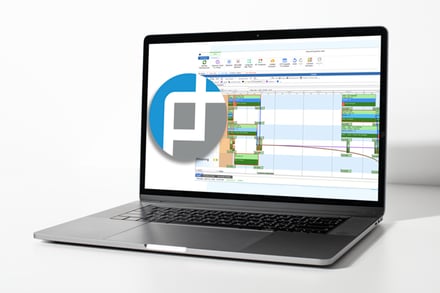
Cost Control Strategies for Production Schedulers
In food and beverage manufacturing, production schedulers are pivotal in orchestrating operations to ensure efficiency, minimize waste, and control costs. With the increasing demand for transparency, sustainability, and rapid delivery times, the pressure to manage costs while maintaining quality has never been greater.
One powerful approach to achieving these goals lies in leveraging advanced scheduling tools like PlanetTogether integrated with enterprise resource planning (ERP) systems such as SAP, Oracle, Microsoft, Kinaxis, or Aveva.
This blog explores how integrating PlanetTogether with leading ERP platforms enables production schedulers to optimize operations, control costs, and maintain the competitive edge required in today’s dynamic market.

The Cost Control Challenge in Food and Beverage Manufacturing
Production scheduling in food and beverage manufacturing involves a complex interplay of variables: fluctuating raw material costs, shelf-life constraints, stringent quality standards, and unpredictable market demands. Controlling costs while adhering to these requirements demands a robust strategy that prioritizes operational efficiency and agility.
Key challenges include:
Material Waste: Perishable raw materials lead to higher waste if scheduling is inefficient or inaccurate.
Energy Consumption: Inefficient production runs result in increased energy usage and utility costs.
Labor Costs: Inadequate scheduling can lead to overtime costs or underutilized labor resources.
Production Downtime: Poorly planned changeovers and equipment failures escalate costs significantly.
Inventory Management: Excess inventory ties up capital, while stockouts disrupt production, affecting customer satisfaction.
With these challenges in mind, production schedulers must adopt data-driven, integrated solutions to streamline processes and reduce costs.


The Role of PlanetTogether in Cost Optimization
PlanetTogether is an advanced production planning and scheduling tool designed to optimize resource allocation, reduce lead times, and minimize costs. When integrated with ERP systems like SAP, Oracle, Microsoft, Kinaxis, or Aveva, it provides a unified platform for seamless data exchange, enabling smarter and faster decision-making.
Here’s how PlanetTogether helps control costs:
Enhanced Visibility Across Operations: Integration with ERP systems consolidates real-time data on raw materials, production schedules, and labor availability. This unified view allows schedulers to identify cost-saving opportunities, such as combining similar production orders to minimize changeovers.
Scenario Planning for Cost Analysis: PlanetTogether’s scenario planning feature enables schedulers to simulate multiple scheduling scenarios. By analyzing the cost implications of each, production schedulers can select the most cost-effective plan while ensuring production targets are met.
Dynamic Scheduling: Integrated systems allow real-time adjustments to schedules in response to unexpected changes, such as equipment breakdowns or last-minute order modifications. This reduces downtime and avoids costly delays.
Optimized Resource Utilization: By aligning production schedules with resource availability, PlanetTogether ensures optimal use of labor, equipment, and materials, preventing over- or underutilization.
Minimized Waste: Food and beverage manufacturers often deal with perishable raw materials. PlanetTogether’s expiration tracking and inventory management capabilities reduce material waste, leading to significant cost savings.

Key Benefits of Integration with ERP Systems
When PlanetTogether is integrated with robust ERP platforms like SAP, Oracle, Microsoft Dynamics, Kinaxis, or Aveva, the cost-control benefits are amplified. Let’s explore the specific advantages of this integration:
Centralized Data Management
ERP systems act as the backbone of a manufacturing facility, housing critical information on procurement, inventory, and financials. Integration with PlanetTogether ensures that this data is seamlessly shared, eliminating silos and enabling informed scheduling decisions.
For instance, SAP provides detailed procurement and inventory data, which can be utilized by PlanetTogether to align production schedules with raw material availability. This reduces overstocking and prevents delays caused by material shortages.
Improved Demand Forecasting
Kinaxis, known for its supply chain management capabilities, integrates predictive analytics with production scheduling. Combining this with PlanetTogether allows schedulers to better anticipate demand fluctuations, optimizing production schedules and reducing costs related to excess inventory or expedited production.
Streamlined Production Execution
Oracle ERP’s robust execution capabilities, when integrated with PlanetTogether, enable real-time monitoring of production runs. Any deviations from the plan, such as machine downtime or labor shortages, are instantly flagged, allowing schedulers to make immediate adjustments to minimize cost impacts.
Automated Workflows
Microsoft Dynamics and PlanetTogether integration bring automation into routine scheduling tasks. Automated workflows reduce manual interventions, minimize errors, and ensure adherence to the most cost-effective production schedules.
Enhanced Sustainability Goals
Aveva’s focus on sustainability metrics complements PlanetTogether’s waste-reduction capabilities. The integration helps production schedulers implement sustainable practices that not only cut costs but also enhance the brand’s reputation.

Practical Strategies for Cost Control Using Integrated Systems
To fully leverage the cost-control benefits of PlanetTogether and ERP integration, production schedulers can adopt these strategies:
Optimize Batch Sizes: Use integrated tools to align batch sizes with demand forecasts and equipment capacity. This minimizes changeover times and material waste, reducing costs without compromising output quality.
Prioritize High-Impact Adjustments: Scenario planning in PlanetTogether enables schedulers to identify small adjustments that result in significant cost savings. For instance, slight changes in production sequences can reduce energy consumption or improve labor efficiency.
Synchronize Maintenance with Production: Utilize real-time data from integrated systems to align preventive maintenance schedules with production downtimes. This avoids unexpected breakdowns that could disrupt production and inflate costs.
Leverage Predictive Analytics: Integrated ERP systems provide predictive insights into market trends and raw material costs. Schedulers can use this data to adapt production plans proactively, avoiding unnecessary expenses during periods of high material costs.
Monitor and Benchmark Performance: Use analytics from PlanetTogether and ERP platforms to track key performance indicators (KPIs) like cost per unit, labor efficiency, and downtime. Regular benchmarking against industry standards helps identify areas for further cost optimization.
For production schedulers in food and beverage manufacturing, cost control is a multifaceted challenge that demands a blend of technology, strategy, and precision. By integrating PlanetTogether with leading ERP systems such as SAP, Oracle, Microsoft, Kinaxis, or Aveva, schedulers can unlock new efficiencies and reduce costs across operations.
From minimizing waste and energy consumption to optimizing labor and material usage, the benefits of this integration extend beyond cost control to support broader organizational goals, including sustainability and customer satisfaction. Adopting such integrated solutions is no longer a luxury but a necessity to stay competitive.
Take the next step in revolutionizing your production scheduling process. Explore how PlanetTogether’s integration with your ERP system can drive unparalleled cost efficiency in your food and beverage manufacturing facility.
Are you ready to take your manufacturing operations to the next level? Contact us today to learn more about how PlanetTogether can help you achieve your goals and drive success in your industry.

























LEAVE A COMMENT